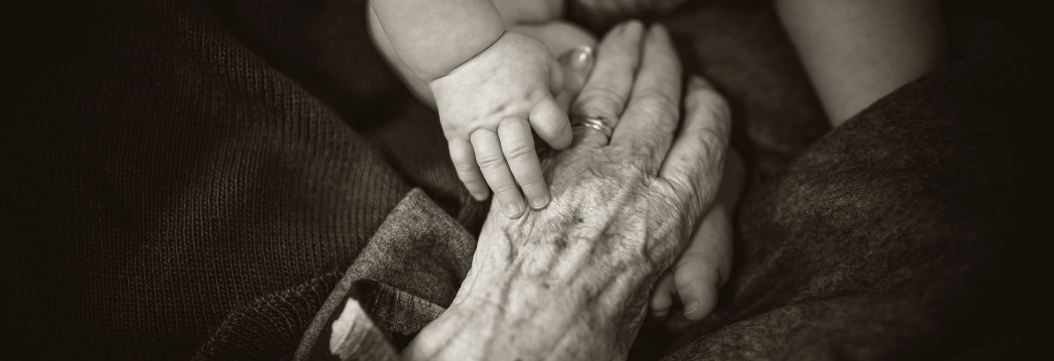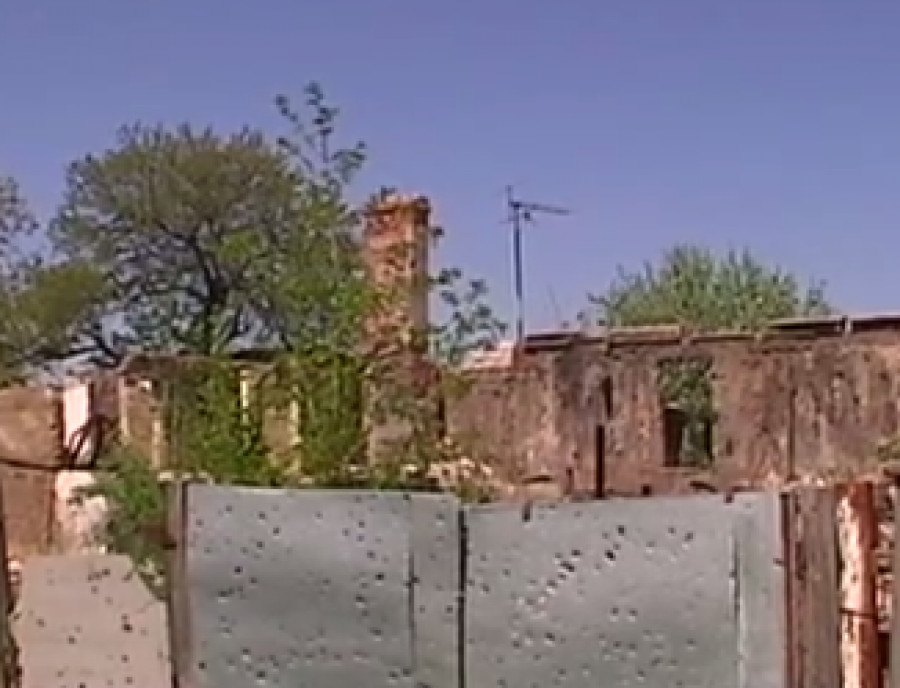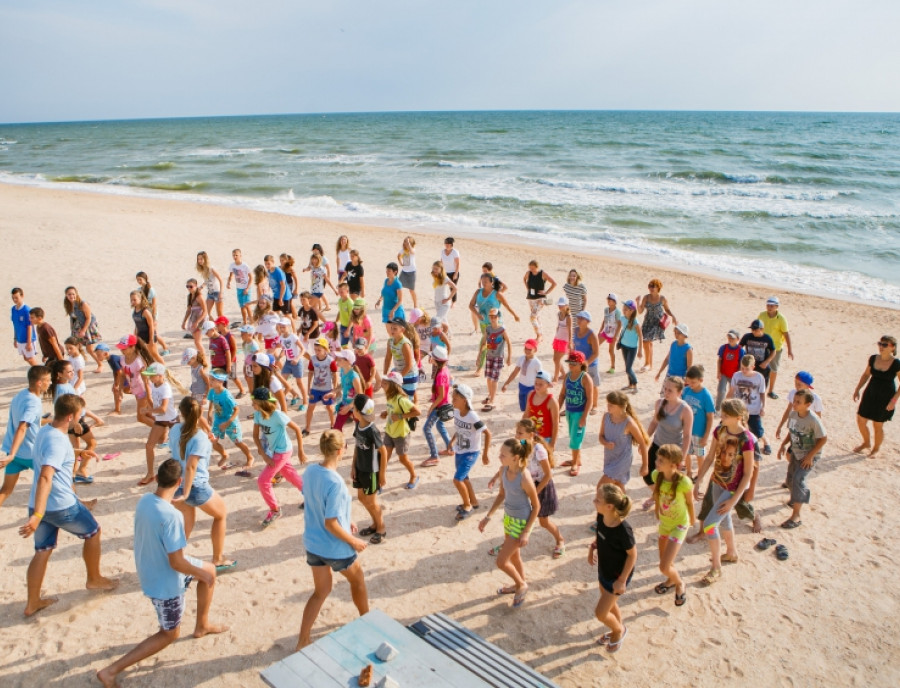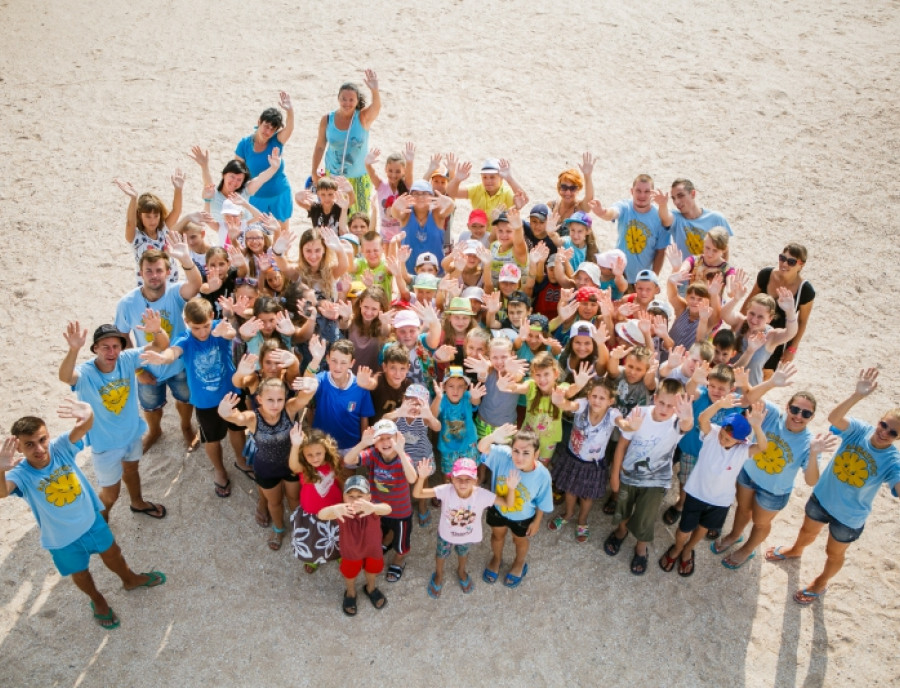‘For me, the war means...’
...ruined lives, fear, and tears.
When did the war in Donbass begin for you?
The feeling of war came much later, in the summer of 2014. It was at that time when I realized that some strange people appeared in the city while some of my acquaintances, friends, relatives were leaving the city where shelling started.
If to take my family, the family of my father’s brother was the first to leave as they lived close to the Donetsk airport, an area of heavy shelling, and their flat was heavily damaged: the windows and balcony were blown away. So, they were in a rush to leave, and that sense of fear came to me in the summer.
Even though, already in the spring of 2014, there was a weird situation. We decided to go to an art museum and brought students from different countries. My sister was a member of an organisation hosting foreign students, and some of them took the risk to come. For instance, there was a guy from Georgia. We went in the museum but could not leave it for a long time. The museum is in the city centre, next to the building of the regional state administration.
Yet, we still did not have a clear feeling of war then; it came only in the summer of 2014. The turning point was probably the shelling damaging the flat of my dad’s brother. It was a kind of shock we experienced, and this moment was the turning point for us.
Did you happen to see military actions with your own eyes?
...No, I didn’t. I did not see hostilities as such. I saw military people, tanks in the city centre. Yet, there were no military activities in our district. Of course, we heard shots; a window glass cracked in our flat but did not break. We criss-crossed the windows with the adhesive tape.
What did you talk about with your family and neighbours during active hostilities?
...Until the very last moment, we did not believe that it would last long. The understanding came later. Yet, looking back now, it seems strange that we did not understand that it was a war. We hoped it would be over; even in the summer when the war was going on, we still hoped that it would end soon and everything would be back to normal, and everything would work out.
What was the most important event of that war for you?
...The most vivid ones were not the events; I could give an account of a dozen of them. What I remember is the feelings, emotions. It is a weird emotion: I no longer have the sense of home. I had had it for a very long time, but when it was gone, I developed a fear that I would never have this feeling of home again...
I had no longing for Donetsk as I understood that it was no longer the same city I had left and which I remember; it is different now. Yet, as I have spent almost all my life there, I still had a feeling of having home there.
This feeling of homelessness lasted for a long period, but gradually vanished. You realize that you are an adult and can build your home, but I had this longing for the old home for a very long time. It is still somewhere deep inside to resurface from time to time.
As for the events, I can tell you about one, not the most dramatic one. In the summer of 2014, I was going to a clinical hospital for my massage therapy and came across the tanks with militants. They were shouting, hooting, firing shots in the air. All the cars were giving them the way while people were standing unable to cross the road. This caused me to be late by 10 minutes. My massage therapist advised me not to go through backyards as some armed people settled there, but to take a central way as it was safer.
One more bad memory is related to the student campus. There was a statue of the Beatles and the ‘Liverpool’ canteen next. The militants turned it into a prison: it shocked me so much that I tried to bypass it by all possible ways.
How has it changed your life?
…My life has changed dramatically with my relocation to Vinnytsia. Earlier, I had lived all my life in Donetsk shielded against troubles by my parents. In Vinnytsia, I started on my own.
It was a shock as it was not a conscious decision to move to a different place. I was not planning to, but forced to do it. This move has changed all my life and myself. I feel differently now.
Of course, there are upsides. Yet, it was very traumatic. Vinnytsia did welcome me, as other displaced people. There were some issues when the owners, landlords were not exactly against renting flats to us but considered us temporary tenants for a month or two. While they wanted to rent it out for a year or two. It was good to feel that they believed in our quick liberation, but we understood it would not be soon and told them about it. Their negative emotions were targeted not at us, but they complicated things for us.
There was a funny story when we came to some granny who was searching for a lodger. When she learnt that we were from Donetsk, her face changed, and she told us that a year ago a person who had relocated from Donetsk was renting a room in her flat. Allegedly, the woman spent her time in nightclubs and took some of granny’s things. It was clear for us that the situation could not have happened with a displaced woman a year ago (as the situation took place in December 2014). We just smiled at it and left, as the option did not fit us.
We came across some financial problems too. We were offended by UAH 440 given to us as relocation allowance to rent accommodation and pay for utilities. It was clear that the sum was too small to cover any of that, yet it came in handy. My parents were helping me, and we who relocated were helping each other.
Do you plan to come back home when the war is over?
...I have thought a lot about it and still think. It is a hard question. Gradually, which is natural, I have started some other life in Vinnytsia.
I am not giving up on the option to come back to Donetsk and hope that the city will be liberated some time. But the life could change it. What I am hundred percent sure about is if Donetsk is liberated, I would be going there very often. I would like to walk through its streets and see it more beautiful than before the war.
Do you feel safe now?
…The feeling of the loss of home is going away, and my boyfriend and I are planning to have a family.
What stands in the way?
...My parents stayed in Donetsk, and my constant fear for them frets me. They could leave but there are some issues there.
What do you dream about?
…To have my parents with me, to have them healthy and safe. My dreams about some financial things are possible to realize while those do not always depend on us. I want Donetsk to be liberated. And if not to look that far, I want the quarantine to be over. My possibility to see my parents also depends on it.
What is happiness for you?
...To have my close ones healthy. To have them alive and happy.
What has become the greatest value for you in recent years?
... Understanding of myself. I have opened some new things in myself and I understand what I am capable of. Then, it is support of my relatives, friends, other displaced people.
What did you learn while overcoming all those difficulties you told us about?
... I learned to live on my own, to stand up for myself, learned to value health and every day of my life. And appreciate even some things that I used to have at home but not in the new place. I learned to value time.
In your opinion, what organization or individuals helped civilians the most during the conflict?
...I know that the Rinat Akhmetov Foundation has helped and continues to aid. I have seen many news about it. Caritas helped too. These organisations are the first to come to my mind.
When quoting a story, a reference to the source – the Museum of Civilian Voices of the Rinat Akhmetov Foundation – is mandatory, as follows:
The Museum of Civilian Voices of the Rinat Akhmetov Foundation https://civilvoicesmuseum.org/






